Help the Ngäbe protect their rainforest
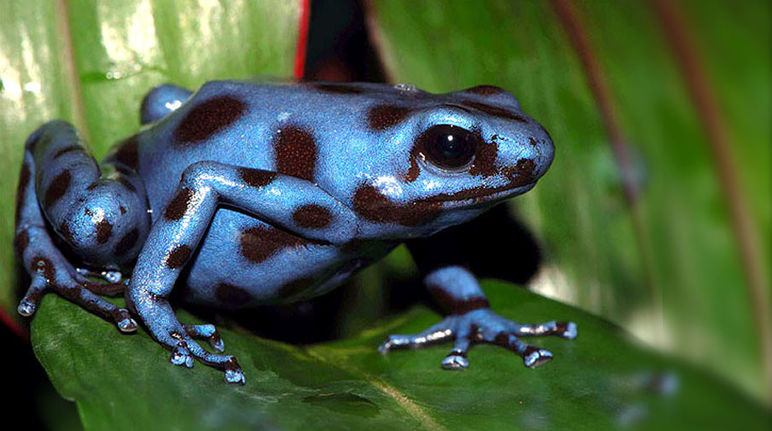 The highly endangered Tabasara Rain Frog (© Oscar Sogandares)
The highly endangered Tabasara Rain Frog (© Oscar Sogandares)
The rainforest of the indigenous tribe Ngäbe is a natural paradise for reptiles and amphibians, such as the endangered Tabasara Rain Frog. Now, part of it could be drowned due to the hydroelectric dam project Barro Blanco. Please demand the protection of the Tabasara rainforest.
News and updates Call to action“”
The rainforest of the indigenous people Ngäbe in Panama shelters an extraordinary diversity of species. Frequent rainfalls in the Tabasara mountains – located in the province of Chiriqui – provide enough humidity to turn this area into a paradise for amphibians and reptiles, many of them being highly endangered species which are only found in this particular region.
One of these species is the blue Tabasara Rain Frog, as Oscar Sogandares, Chiriqui Natural tells us. This beautiful creature lives exclusively on the riverbank which could soon be drowned as part of the planned artificial lake.
Oppression of indigenous protests
Panama's government has officially acknowledged the land to be indigenous territory. However, the Ngäbe never gave their consent to the dam project. Their protests were brutally oppressed in February. At least two were killed, more than 100 injured, arrested and humiliated.
The construction costs of the Barro Blanco hydroelectric power station are estimated an equivalent of 100 million euros. Almost 20 million have been granted by three public development banks: the German DEG, the Dutch FMO and the Central American BCIE.
The indigenous people as well as conservationists are asking these banks not to allocate funds for this dam project in the heart of the rainforest.
Please write to the bank and demand the protection of this natural paradise and of the Tabasara Rain Frog.
TV documentary about Barro Blanco by Aljazeera (25 min.)
LetterTo:
Deutsche Investitions-und Entwicklungsgesellschaft GmbH (DEG), Germany
Tel.: +49 221 4986-0, Fax +49 221 4986-1290
info@deginvest.de
Dear Sirs,
the German DEG, alongside the Dutch FMO and the Central American BCIE, is financing plans for a hydroelectric power station called Barro Blanco in Panama, having granted almost 20 million euros.
In order to produce 29 megawatt, a 55 metres tall dam is planned to be built in the course of the Tabasara river. This would lead to the banking-up of the river for miles and would cause the flooding of 1.6 square miles of rainforest and cultivated land.
The inhabitants and especially the Ngobe natives have been fighting against a hydroelectric power station on their land for decades. Time and again, the construction of Barro Blanco could not be put into effect due to the resistance of the people.
But now the military police is using brute force to oppress the protests of the people. At least two were killed, numerous are missing, dozens of people were injured and arrested - this is the sad summary of a police operation this February.
The DEG is referring to environmental and social studies, signed contracts and the laws of this Central American state. However, violence and shots fired at indigenous people who are struggling for survival are not compatible with basic and human rights.
The cited studies are highly superficial and loaded with imprecision and mistakes. For example, the environmental review states that the endangered animals are able to migrate to other areas. However, the extremely endangered blue Tabasara Rain Frog is not even mentioned in the study. In addition, even more contracts have already been signed for the construction of further hydroelectric power stations downstream.
The problems mentioned above are well documented and summarized in the television report "Panama: village of the damned":
http://www.aljazeera.com/programmes/peopleandpower/2012/03/20123208464402131.html
Being involved with Barro Blanco, the DEG is also jeopardizing the previous success of development cooperation with the Ngobe.
Therefore, the bank should withdraw its support for the Barro Blanco hydroelectric power station project immediately and should refrain from granting further financial support.
Yours faithfully,
Panama: UN expert calls for recognition of indigenous peoples’ rights
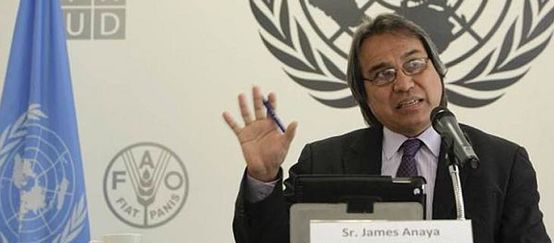
The United Nations Special Rapporteur on the Rights of Indigenous Peoples, James Anaya, concluded his official visit to Panama today. In his final statement, Mr. Anaya stated that indigenous peoples of the country are calling for greater recognition and protection of their territories and natural resources.
Panama: Time is running out for Tabasará communities
On 8th March, during a 3-hour blockade which prevented vehicles from leaving or entering the Barro Blanco hydroelectric dam construction site in western Panama, an 80-strong group of Ngabe protesters were dispersed by riot squads who pelted the area with tear gas.
Statement on the Barro Blanco dam project in the rainforest of Panama
The response of the German Investment and Development Company (DEG) to our “Dam action alert: Please help the Ngobe protect their rainforest” campaign was disappointing. The reply relies on superficial data that does not reflect the realities of the Tabasará region. We will continue to call on the DEG to stop the financing of the dam immediately.


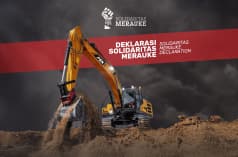








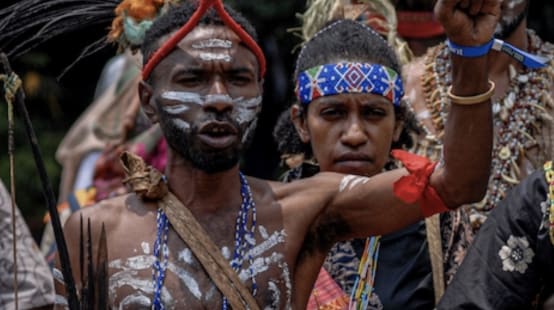
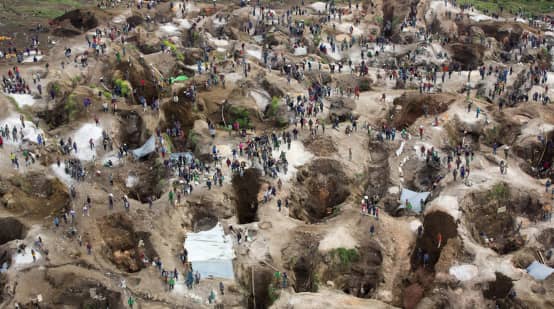
 Recent successes
Recent successes